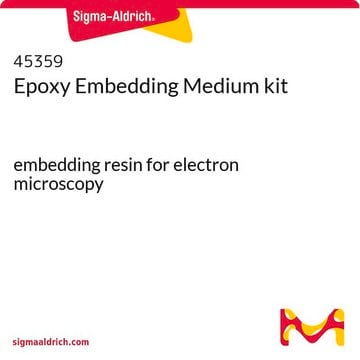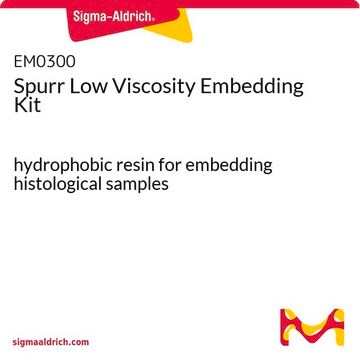75632
Osmium tetroxide solution
suitable for electron microscopy, 4% in H2O
Synonym(s):
Osmium(IV) oxide
About This Item
Recommended Products
form
solution
Quality Level
reaction suitability
reagent type: oxidant
concentration
4% in H2O
technique(s)
electron microscopy: suitable
color
colorless to yellow
pH
6.0-8.0
density
1.0 g/mL at 20 °C
application(s)
hematology
histology
storage temp.
2-8°C
SMILES string
O=[Os](=O)(=O)=O
InChI
1S/4O.Os
InChI key
VUVGYHUDAICLFK-UHFFFAOYSA-N
Looking for similar products? Visit Product Comparison Guide
Application
Biochem/physiol Actions
Packaging
10 mL in ampule
Other Notes
Signal Word
Danger
Hazard Statements
Precautionary Statements
Hazard Classifications
Acute Tox. 2 Dermal - Acute Tox. 4 Inhalation - Acute Tox. 4 Oral - Eye Dam. 1 - Skin Irrit. 2
Storage Class Code
6.1B - Non-combustible acute toxic Cat. 1 and 2 / very toxic hazardous materials
WGK
WGK 1
Flash Point(F)
Not applicable
Flash Point(C)
Not applicable
Personal Protective Equipment
Certificates of Analysis (COA)
Search for Certificates of Analysis (COA) by entering the products Lot/Batch Number. Lot and Batch Numbers can be found on a product’s label following the words ‘Lot’ or ‘Batch’.
Already Own This Product?
Find documentation for the products that you have recently purchased in the Document Library.
Customers Also Viewed
Our team of scientists has experience in all areas of research including Life Science, Material Science, Chemical Synthesis, Chromatography, Analytical and many others.
Contact Technical Service








